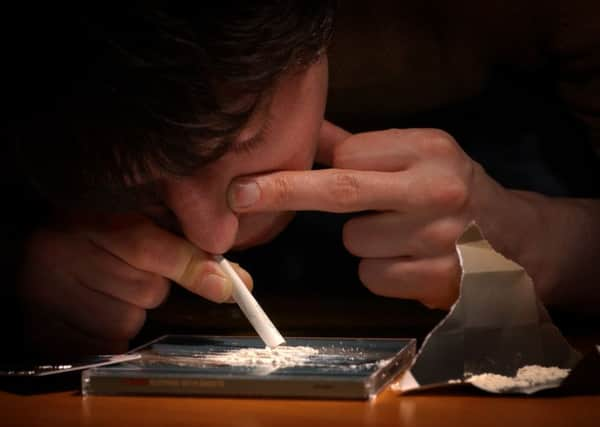Why it makes financial sense to help drug addicts, not punish them – Karyn McCluskey


It can be comfortable, and comforting, to put clear blue water between ourselves and those we may view as being at the bottom of the pile and it certainly makes it easier to sleep at night if you decide their lot in life is down to personal choice or a character failing.
However the problem still remains. It doesn’t help those sleeping on the streets, who have suffered great trauma and who are damaging themselves and others while using substances. Many of those who pass through the justice system misuse drugs or alcohol – more than 70 per cent of male prisoners have an alcohol-use disorder and almost 40 per cent of adults were under the influence of drugs when they committed their offence. When you look at this group’s other shared features – many have been in care, have experienced adverse child experiences, including abuse and neglect, and have mental health needs – the illusion of choice melts away.
Advertisement
Hide AdAdvertisement
Hide AdThat’s not to say the desire to change isn’t vital; it is, but there needs to be an understanding of how hard it is to climb out of a 20ft hole alone. It’s unlikely people will make it out on the first attempt or without the help of others or special tools. I labour the point (I do love to climb) but I stand by it.
The good news is we have some incredible programmes in Scotland which deliver evidence-based treatment, as well as an amazing recovery community. One of my favourite services is Lothians and Edinburgh Abstinence Programme (LEAP), a three-month treatment and rehabilitation abstinence-based programme for those dependent on alcohol and other drugs. It provides medical and therapeutic care, supports participants with housing, education, employability, and links in with recovery groups like AA and NA. They recognise the impact it can have on the family and involve relatives in the programme too. LEAP continues to provide support for up to two years after graduation.
They understand addiction doesn’t exist in a vacuum and that if you don’t think about the “what next?” then you’re setting people up to fail. It’s intensive and takes time and hard work. It is no easy option but the difference it can make to people is unquantifiable.
However, having these kinds of world-class treatment options is only part of the puzzle – they must also be accessible when needed. So many people are being asked to wait three months and often even longer. What chance do people have if we can’t act when their motivation is at its peak? In Scotland, It costs £37,000 to keep someone in prison for a year and our remand population costs £55 milliona year. That’s £55m to lock up people who haven’t been found guilty – imagine if we were to treat those among them who needed it, rather than lock them in a cell? In terms of reducing crime and victimisation, it’s crucial. If you’re not moved by the moral argument, the financial one is worth considering. You can’t punish people out of addiction, no matter how angry we might be at the chaos they cause. Anger rarely solves the simplest of problems, never mind the most complex.
Karyn McCluskey is chief executive of Community Justice Scotland
